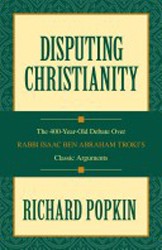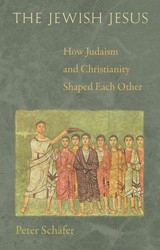In conversations with Christian lay people and clergy, at interfaith programs and across neighborly yards, the question inevitably comes up, “What is the Jewish view of Jesus and Christianity?” This thoroughly researched and well-organized book expands on this question, showing that there are multiple Jewish perspectives on Christianity and on other religions stretching from the Talmudic era 2,000 years ago to the modern era.
Brill presents several Jewish outlooks, including inclusivism, exclusivism, universalism, and pluralism, citing numerous texts and thinkers. Readers hear from voices as diverse as the medieval poets Judah haLevi and Solomon ibn Gabirol from the Golden Age of Spain; the well-known commentator Rashi; the philosopher-physician-theologian Moses Maimonides; the Enlightenment thinker Moses Mendelssohn; the first Israeli Chief Rabbi Avraham Isaac Kook and the seventh Chabad rabbi, Rabbi Menachem Mendel Schneerson; and modern thinkers from Rabbi Samson Raphael Hirsch to Rabbis Joseph Soloveitchik, David Hartman, Yitz Greenberg, Sir Jonathan Sacks, and Elliot Dorff.
Despite the notable absence of modern thinkers such as Mordechai Kaplan and Eugene Borowitz, whose writings about peoplehood and about covenant belong in this book’s discussion about other religions in the modern marketplace of ideas, it is exciting to see that this book of Jewish philosophy goes beyond the frameworks of Orthodox, Conservative, Reconstructionist, and Reform Judaism. This book is especially appropriate for students, teachers and professors of Jewish thought and for any reader with a philosophical background preparing for interfaith dialogue. Index, notes.





